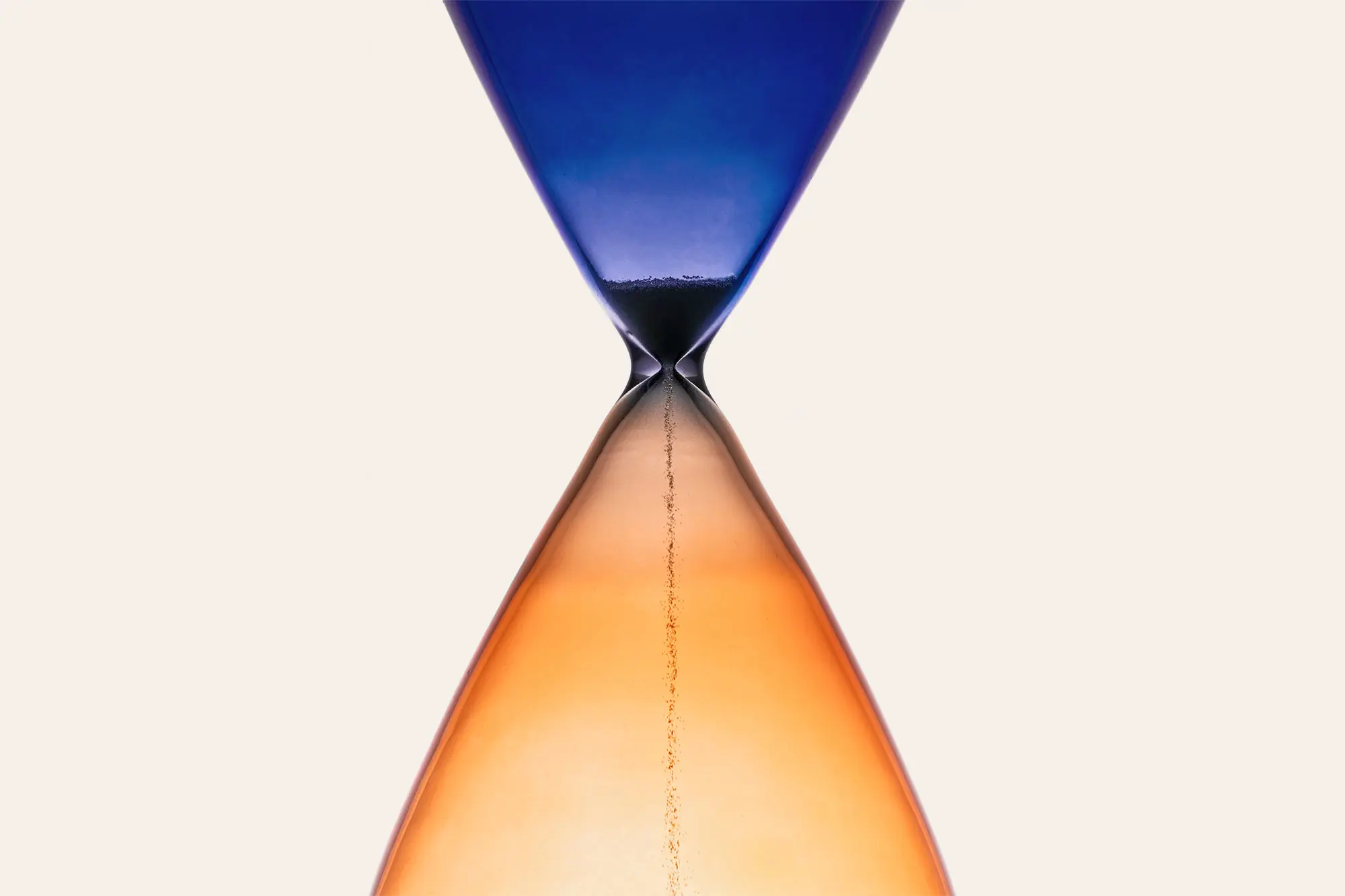How Long Does Menopause Last?
5 minute read

Hot flashes. Mood swings. Vaginal dryness.
Check, check, check.
You’ve stashed away your sweaters, memorized every how-to-be-happy self-help book and combed countless pharmacy shelves for support.
At your breaking point, you can’t help but wonder: How long does menopause last, anyway?
Because you’re so ready for it to be over.
Pause… and take a breath. Because in reality, even as you wonder how long menopause lasts you soon find out that this thing called menopause has its own timetable. So what is menopause and what are the common symptoms? Find out everything you need to know below.
First up: perimenopause
So what age does menopause start? This early menopause stage is where it all begins. This initial phase of premature menopause, a period of great change, usually starts in your 40s, but can start as early as your 30s. It marks the final years of your reproductive life.
• Even though you’re still menstruating, fertile and able to get pregnant, this is the first phase of the journey toward menopause.
• Perimenopause can begin 8 to 10 years before menopause arrives.
• Your ovaries get smaller and produce less estrogen.
• Your menstrual cycle begins to change. Bleeding can be heavier, lighter, longer or shorter than normal. Periods can become irregular, too: you may skip a month (or more), before your cycle resumes again.
• Ovaries get smaller and produce less estrogen.
• You remain in perimenopause until menopause, when your ovaries stop releasing eggs and your menstrual cycle stops altogether.
• The length of perimenopause differs for every woman. You can linger here for just a few months or it can be a longer, drawn out process of 10 years.

Next up: profound changes
One study has found that almost 90 percent of women seek out medical advice for their changing hormone levels and perimenopause symptoms. (No wonder they’re wondering how long menopause will last!)
Here are some common clues that menopause is on the horizon:
• Hot flashes. Menopause and hot flashes go hand-in-hand. Recent studies have found these heat surges can last upwards of 10 years for some women, and are worse for African American women and women with a high percentage of body fat
• Night sweats
• Heart palpitations
• Vaginal dryness
• Weight gain
• Depression
• Anxiety
• Erratic menstrual cycle
• Insomnia
• Dry skin, eyes and mouth
• Problems with memory and concentration
• Urinary incontinence
• Lower libido
• Hair loss or thinning
Then comes menopause
You’ve officially reached menopause when you’ve gone 12 consecutive months without a menstrual period. Once you’ve made it past this menopausal transition, your childbearing years are over.
• Your ovaries have stopped producing most of their estrogen, and progesterone, and stop releasing eggs.
• The average age of menopause is 51.
• Most commonly, menopause occurs in women between ages 45-55, although it can occur as early as your 30s and as late as your 60s.
• Smokers reach menopause about two years earlier than non-smokers.
• Family history (when your mother and/or sister reached menopause) can be a close predictor of when you’ll reach menopause.

And finally, post-menopause
Asking, “How long does menopause last?” is so yesterday. Today we know that when you’ve crossed the threshold, this is where you’ll spend about one-third of your life. No more pregnancy worries. Time to toss the tampons and those erratic moods. After menopause passes, hormone levels even out and your sanity returns, with many women energized and excited to start this new phase of life.
And yet. It’s important to note that the combination of your body’s lower estrogen production and the natural aging process can make certain health conditions more likely during this time, and make some menopausal symptoms linger, as well.
• Heart disease. Estrogen has a protective effect on cholesterol, and the heart’s arteries and blood vessels, by keeping them open and relaxed. Without estrogen, the risk of heart disease climbs.
• Osteoporosis. The loss of bone mass accelerates after menopause, due to plummeting estrogen levels.
• Hot flashes. Though they usually subside within a few years of menopause, they can be stubborn and persist for years for more than one-third of post-menopausal women.
• Vaginal dryness. A lack of natural moisture, due to a lack of estrogen, affects between one-quarter and one-third of post-menopausal women.
• Urinary incontinence. Don’t sneeze or laugh too hard: Research finds that about half of post-menopausal women have trouble holding in their urine. That’s due to less elastic vaginal tissues and weakening of the pelvic floor.
With all this in mind, taking care of your health with good nutrition and exercise before, during and after natural menopause can help manage the end of your period – but the start of a whole new period.
With the help of medical pros, hormones, supplements, and a whole lot of friends, you’ll get through it.
Experts agree that for the vast majority of healthy women, supplementing your body's natural hormones is the safest and most effective treatment to ease the symptoms of menopause, including hot flashes and night sweats. Head to our product page to check out your options. A menopause-trained doctor will review your choices to make sure you get the right treatment.
Sources
https://my.clevelandclinic.org/health/diseases/15224-menopause-perimenopause-and-postmenopause
https://www.acog.org/womens-health/faqs/perimenopausal-bleeding-and-bleeding-after-menopause
https://www.hormone.org/diseases-and-conditions/menopause/menopause-mood-swings
https://www.womenshealth.gov/menopause/menopause-and-your-health
https://womenshealth.obgyn.msu.edu/blog/hot-flashes-years-after-menopause
Subscribe
Go ahead, you deserve to